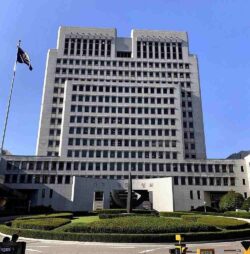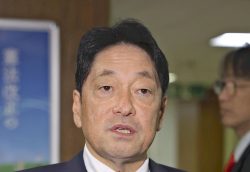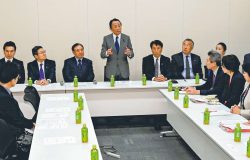17:45 JST, October 16, 2023
Sri Lanka’s Information and Communication Technology (ICT) sector is facing a dearth of skilled workers with most having already left the country, a top official said.
Sri Lanka has aimed at boosting the digital economy to contribute at least $15 billion to the economy by 2030 under the Digiecon-2030 plan which includes digital nomad visas, e-payments in all government institutions, and single window approvals.
According to the Digiecon-2030, Sri Lanka’s ICT workforce should be at least 175,000 this year and 300,000 by 2025.
“But we only have 75,000 at the moment. We are on the path of achieving the targets of Digiecon-2030, but the brain drain is a huge concern,” Prasad Samarawickrema, the Project Director of Digiecon-2030 told EconomyNext.
The ambitious Digiecon-2030 aims to accelerate Sri Lanka’s economy towards an inclusive digital economy by leveraging advanced technology-based solutions.
“Most of the ICT workers leave the country with just one year of job experience mainly to Europe countries,” Samarawickrema said.
“As at present we need at least 50,000 additional ICT workers and to achieve our targets we need start-ups and technicians. Without them, achieving the target would be difficult.”
He said Sri Lanka needs to change the school syllabus to include ICT as a subject and change the ICT courses in vocational training centers to produce employable ICT workers.
“You need at least seven years to change school syllabus and one-and-half years in vocational training schools. By the time they change it, the latest technologies would have already come in and we may be teaching outdated subjects,” he said.
“We need a special educational system change in the ICT sector. Even the graduates produced in Sri Lanka are unemployable in the industry.”
Sri Lanka has seen an exodus of ICT workers to foreign countries after it plunged into an unprecedented economic crisis which forced the authorities to declare bankruptcy and sovereign debt default in April last year.
President Ranil Wickremesinghe, who is also the Minister of Technology, has been trying to digitalize the economy to reduce bribery and corruption and fast track the economic growth. However, many state sector employees have been resisting digitization in the past.
"World" POPULAR ARTICLE
-

8 Japanese Nationals Stranded on Indonesia’s Sumatra Island
-

Mozambican Cooking Class Held in Matsuyama, Ehime Pref.; Participants Don Aprons, Bandanas Made from Traditional Mozambique Fabric
-

China to Impose Sanctions on Shigeru Iwasaki, Former Head of Japan’s Self-Defense Forces, Who Serves as Adviser to Taiwan’s Executive Branch
-

U.S. Senate Resolution Backs Japan, Condemns China’s Pressure
-

South Korea’s Top Court Dismisses Nippon Steel Appeal in Lawsuit over Requisitioned Worker
JN ACCESS RANKING
-

Keidanren Chairman Yoshinobu Tsutsui Visits Kashiwazaki-Kariwa Nuclear Power Plant; Inspects New Emergency Safety System
-

Tokyo Economic Security Forum to Hold Inaugural Meeting Amid Tense Global Environment
-

Imports of Rare Earths from China Facing Delays, May Be Caused by Deterioration of Japan-China Relations
-

University of Tokyo Professor Discusses Japanese Economic Security in Interview Ahead of Forum
-

Japan Pulls out of Vietnam Nuclear Project, Complicating Hanoi’s Power Plans






















